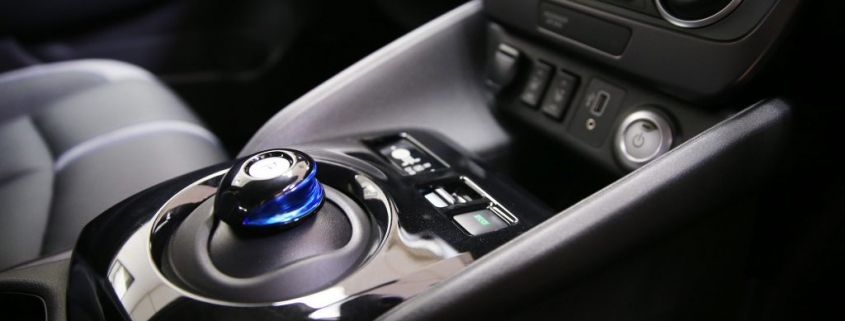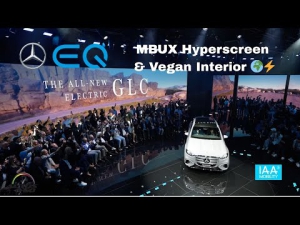Are There Any Cars That Are 100 Percent Vegan?
Ask any vegan you meet why they don’t eat meat, and you’ll hear various answers. Some might tell you they ditched a carnivorous diet due to their compassion for animals. Others might say they’re doing their part to protect the planet from bovine emissions. But ask a vegan if the cars they drive reflect their plant-based philosophy, and they might not have an answer at all.
Walking (and rolling) gently on the planet
Vegan adherence to the non-exploitation of animals goes beyond the dinner plate. According to The Vegan Society, vegans eschew clothing made of animal products such as wool or silk, and they don’t wear leather shoes or carry cowhide wallets. Makeup tested on animals is strictly avoided, as are zoos, public aquariums, and horse tracks. What about cars? Can a dedicated vegan buy and drive a vehicle that doesn’t exploit animals in any way whatsoever? The easy answer is no.
Today, many automakers recognize their eco-conscious customer base and design cars accordingly. Leather-wrapped steering wheels can be swapped for non-leather versions. Synthetic leather seats are another way carmakers attract vegetarian and vegan customers. But until cars are made without tires, it’s unlikely a 100 percent vegan car will ever be offered.
No car is vegan because these vehicle parts contain animal parts
Rubber tires
Yes, rubber comes from a plant, but by the time rubber sap is processed to become a vehicle tire, animals are involved. Most of the ingredients used to make a tire — including rubber, sulfur, and carbon black — are vegan. Stearic acid is not.
Produced from basic animal fats, stearic acid is added to rubber during the tire-making process to activate vulcanization accelerators, Specialty Tires of America reports. Stearic acid also helps rubber tires hold their shape, Treehugger explains.
Seats, steering wheels, and steel
Asking for synthetic leathers solves one problem vegans face when shopping for cars. Finding a vehicle made without steel is another story altogether. Beef tallow is commonly used as an industrial lubricant when making the steel sheets that compose most vehicle bodies.
Fuel
If you drive an electric car that you charge with solar power or if your vehicle runs strictly on vegetable-derived biodiesel, you might think your fuel is as vegan as it can be. But it’s not. Many biodiesel products, especially those labeled “renewable diesel,” are cheap gasoline substitutes made from low-grade animal grease and inedible fats, National Geographic reports.
Classic gasoline isn’t vegan either. Although the notion that gas and other petroleum products derived from dinosaurs has been thoroughly debunked, the fuel you pump into your tank indeed comes from ancient animals, plants, and microorganisms that lived millions of years ago, ThoughtCo reports.
However, some cars are more vegan-friendly than others.
The top vegan-friendly vehicles of 2021
The key to veganism is “doing your best,” Car magazine explains. Although it’s impossible to purchase a completely vegan vehicle, some automotive options are more vegetarian-friendly than others. Noting that for most people — including vegans — it’s simply not practical to live without a car, LiveKindly recommends the following models:
Renault Twizy
Funny-looking and fuel-efficient, the Renault Twizy can travel 62 miles on a full charge, making it the ideal zero-emissions vehicle for zipping to the health food store for a bag of vegetables. Steel use is minimal in this perky little two-seater with an all-plastic interior.
Nissan Leaf
Surprisingly speedy for an electric car, the Nissan Leaf is the most popular EV in Europe. Vegan-friendly options include synthetic leather seats and steering wheel covers, along with a plastic gear shift that BuyaCar calls “great for vegans.”
BMW i3
Relatively cruelty-free compared to other luxury cars in its class, the BMW i3 ranks among the most environmentally conscious vehicles. The seats are made from 100 percent recycled materials, as are 25 percent of the plastics used to make the vehicle.
If you’re a vegan, we applaud your commitment to animals. Bear in mind, however, that pure veganism is practically impossible to achieve, especially where cars, bicycles, and other wheeled conveyances are concerned.
RELATED: How Much Does It Cost to Charge a Nissan Leaf?
The post Are There Any Cars That Are 100 Percent Vegan? appeared first on MotorBiscuit.










